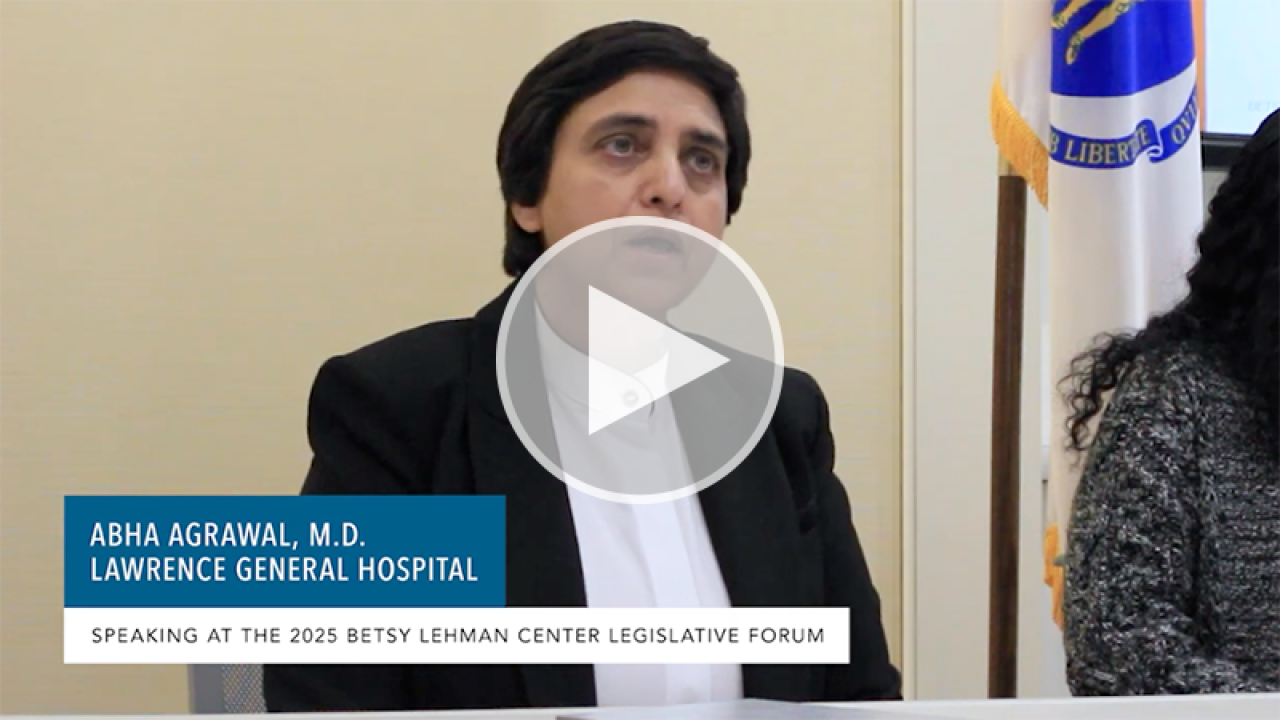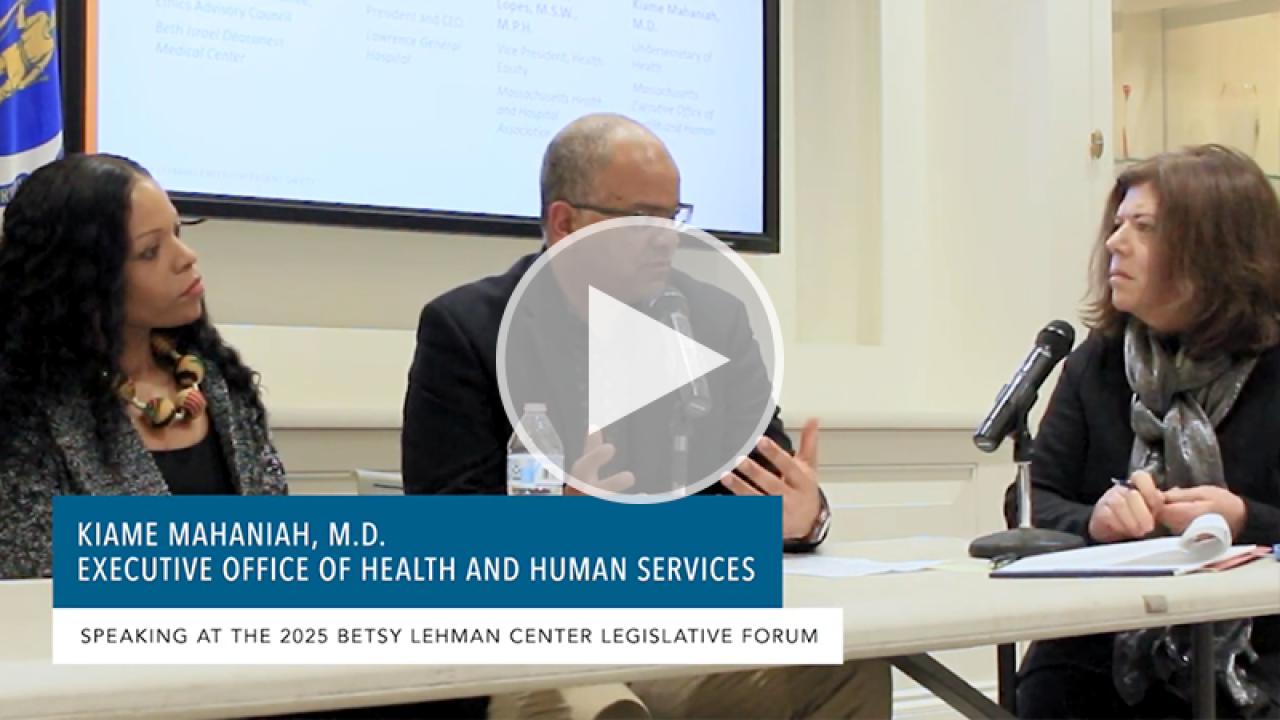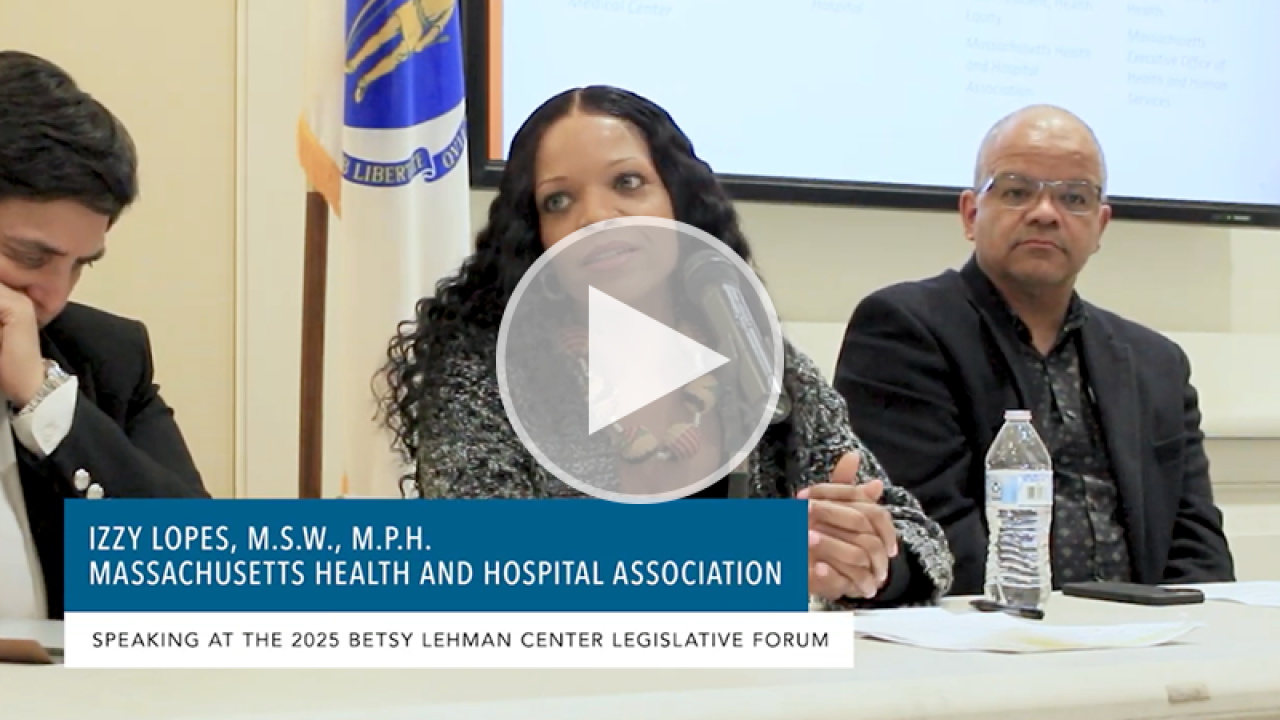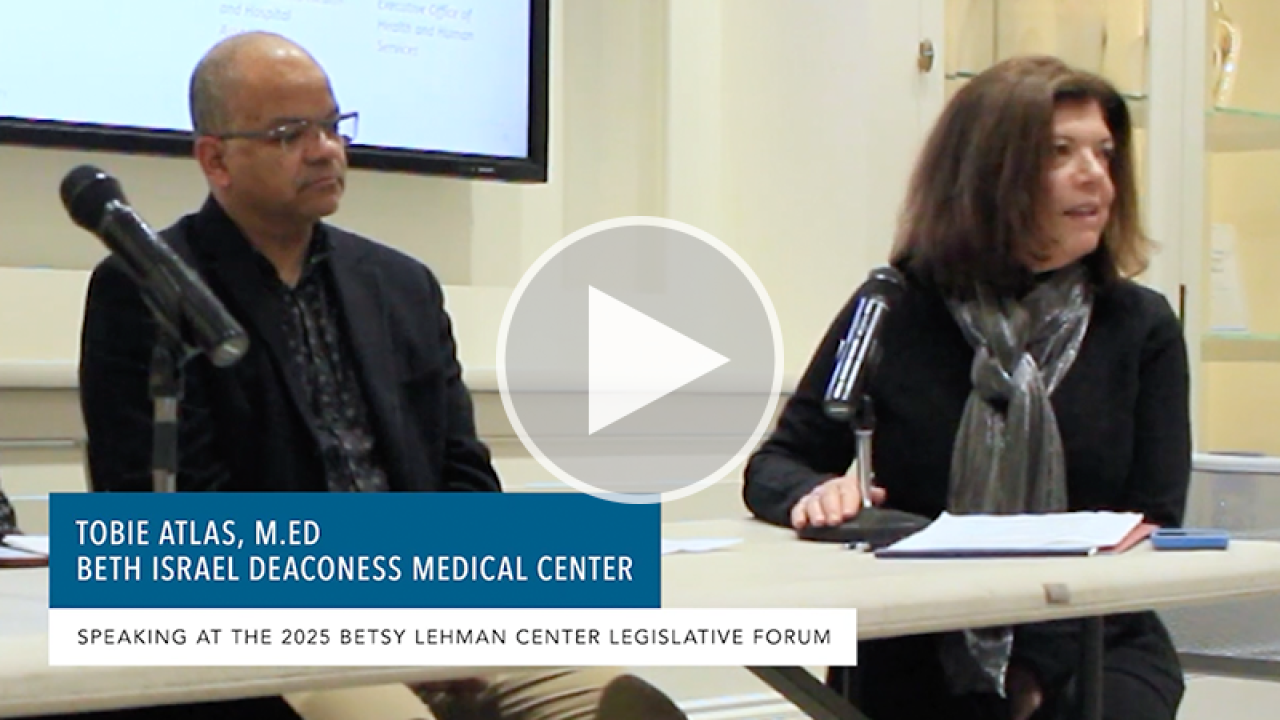State House forum highlights safety agenda
Speaking with a sense of urgency about the need to make health care safer, safety leaders in Massachusetts brought fresh insights from their work to a State House forum organized for the release of the Betsy Lehman Center’s annual report.
At the January 29th forum, Betsy Lehman Center Executive Director Barbara Fain reminded legislators, safety experts, and others in attendance that Betsy Lehman died because of preventable medical errors 30 years ago in December 1994.
Preventable harm to a patient is going to have big impact on the system that's already operating at capacity.
“We’d like to be able to say that high rates of patient harm are a thing of the past,” Fain remarked, “But we can’t.”
Fain was introduced by State Representative John J. Lawn, Jr., who co-sponsored the event with State Senator Cindy F. Friedman. The lawmakers have served as co-chairs of the Joint Committee on Health Care Financing and continue to advocate for a safer health care system for Massachusetts patients.
Highlighting the Center’s 2024 annual report, Fain emphasized the “ripple effects” of patient harm events, which not only have consequences for patients and their families but also strain the health care system’s capacity, increase costs, and contribute to inequities in care.
“Beyond the cost, preventable harm to a patient is going to have big impact on the system that's already operating at capacity,” she said. When a patient needs extra hospital care because of an adverse event, other patients are left in a crowded emergency department, and waits for rehabilitation services grow. Overcrowded EDs raise the risk of harm to patients, and frontline staff, frustrated by their inability to treat patients safely, often leave the health care field altogether.

Dr. Abha Agrawal, CEO and President of Lawrence General Hospital, on creating a safety culture
“So there’s a vicious cycle that we often don't think about when we think about the consequences of these events,” Fain said. “And the system impacts are profound because the numbers are so big.”
Next, a panel of health care leaders, moderated from the patient perspective, shared their views on safety challenges and opportunities.
President and CEO of Lawrence General Hospital, Abha Agrawal, M.D., spoke about approaches to safety improvement at the hospital that include keeping the leadership and board members informed about adverse events, empowering frontline workers to speak up about concerns, and taking action to build safety cultures.

Dr. Kiame Mahaniah, Massachusetts Undersecretary of Health, on health care safety and equity
“We agree that we are going to have to be on a journey to zero harm. So it’s not like 1% is okay, or .01% is okay. No, it’s zero harm,” she said.
Dr. Agrawal also noted that the hospital has moved away from expressing potential harm events in percentages or ratios. “This is the number of patients because that’s the number of humans who were potentially hurt, right?” she said.
Also on the panel, Kiame Mahaniah, M.D., Undersecretary of Health, Massachusetts Executive Office of Health and Human Services, reflected on his time in leadership at Lynn Community Health Center.

Isabelle Lopes, Vice President at Massachusetts Health and Hospital Association, on the importance of listening to patients
“I didn’t think of safety as a separate thing from the rest of the work that we did,” he said. “When you're fixing systems that are hurting people, obviously the people who are suffering the most benefit the most.”
“And I really wanted to empower the workforce,” he added. “Burnout is a part of it, as is moral injury – when you know you’re participating in a system that is not helping the people you serve.”
Isabelle (Izzy) Lopes, M.S.W., M.P.H., Vice President of Health Equity, Massachusetts Health and Hospital Association, echoed comments by Dr. Agrawal that when a patient is harmed, they are more than a statistic on a hospital’s dashboard.

Tobie Atlas, Betsy Lehman Center adviser, on speaking up for yourself as a patient
“It’s one thing to appropriately treat a patient from a medical perspective,” she said. “And then there’s another thing entirely about treating patients with dignity, treating them with respect and ensuring they feel heard.”
She added: “I feel very strongly that there’s no decision that can be made, no strategic decision that hospitals are making all the time, without the patient voice.”
The panel was moderated by Tobie Atlas, who spoke about her experiences with the health care system as a patient. “I had a health event that took eight months to diagnose,” she said. “I was misdiagnosed, bounced from specialist to specialist, given medications that made things worse, and by the end I was deemed a ‘problem patient.’”
Years later, when she expressed a new safety concern, her provider team welcomed her input. “I was invited to work with clinicians, administrators and staff to help lessen harm and improve the patient experience.”
Atlas serves as an adviser to the Betsy Lehman Center because her experience taught her the value that patients bring to improving health care. “A key goal of the Betsy Lehman Center is to empower people across the health care continuum to recognize and report instances of harm without fear of criticism or reprisal,” she added. “I think my voice and the voice of other patients reminds people that we are all in this work together.”